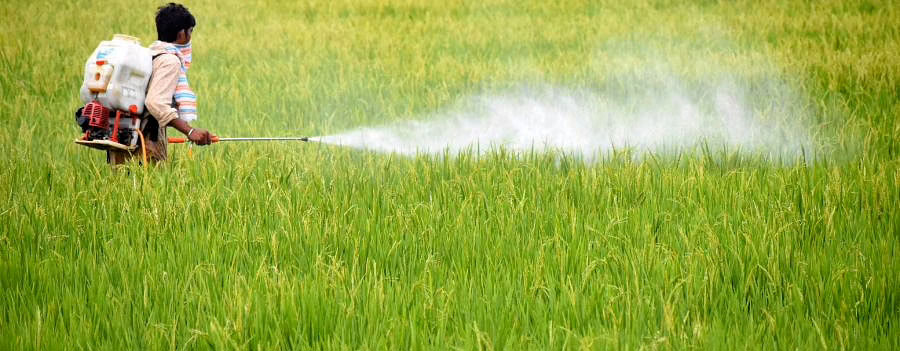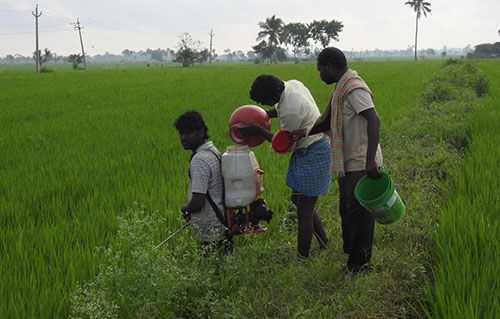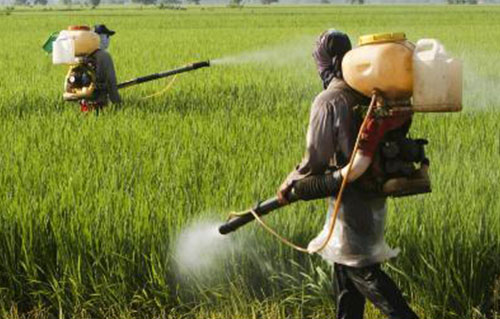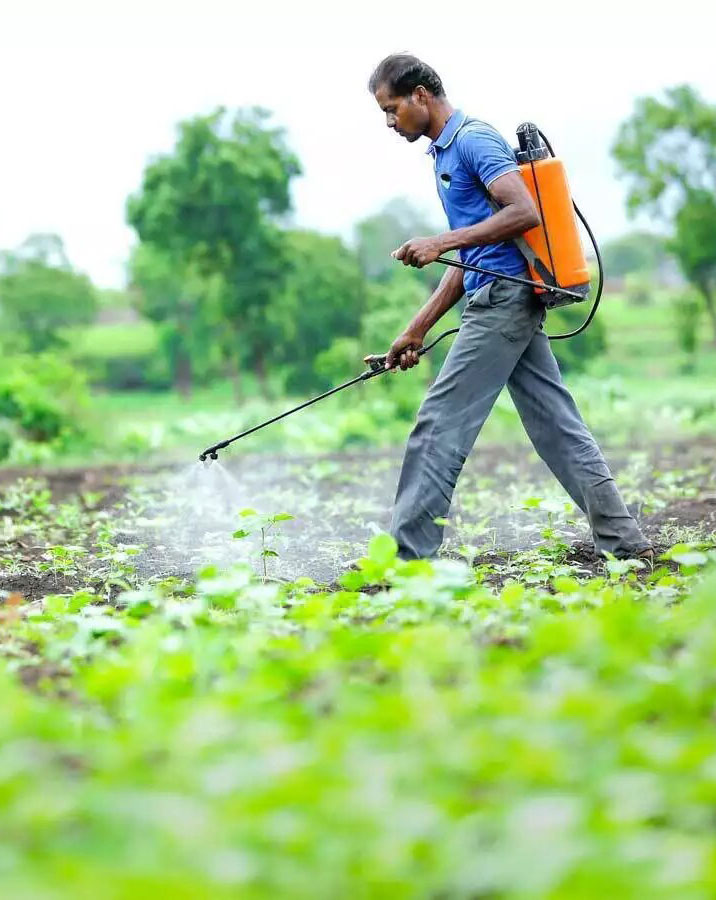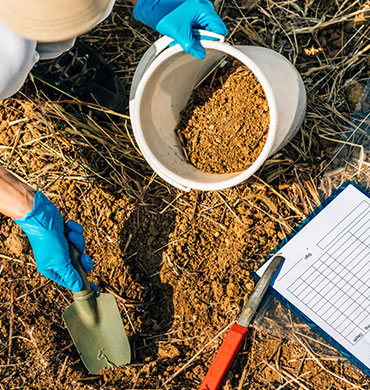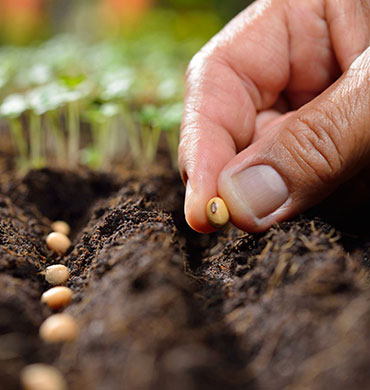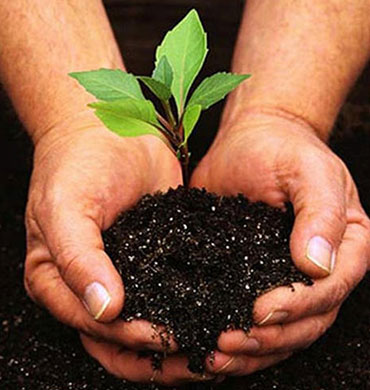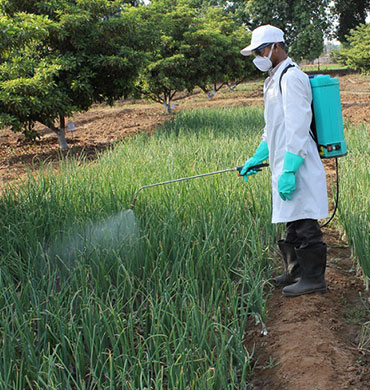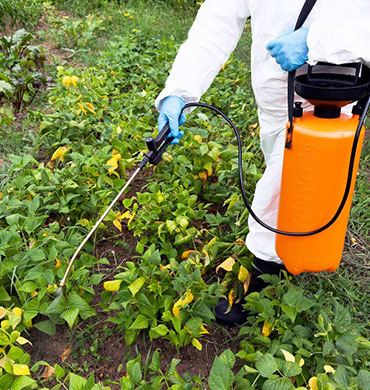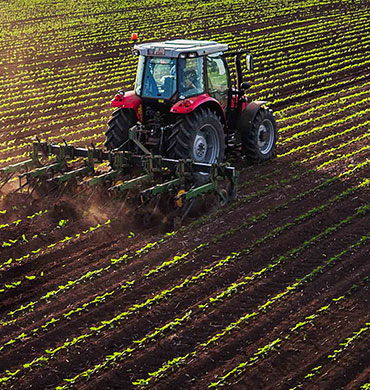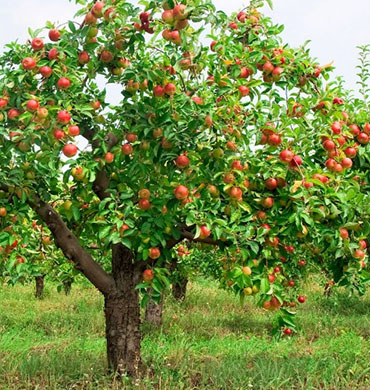Pesticide
Industrial agriculture relies on two types of chemicals: fertilizers and pesticides. The former boost soil fertility, making crops more productive, while the latter protect crops by controlling weeds (herbicides), insect and animal infestation (insecticides and rodenticides) and fungal/mold diseases (fungicides).
Pesticides come in a variety of formulations, depending on their target and purpose. For example, fumigants are applied as gases to the soil, and “systemic” pesticides are absorbed by leaves before spreading through the rest of the plant. Not all pesticides and formulations are created equal — some chemicals can harm a wide variety of non-target species, and some application methods have high potential to drift off target. This means that pesticides can cause harm to the wider ecosystem, instead of just their intended targets. This presents a real risk for biodiversity and environmental health.
Why Use Pesticides?
For farmers, pesticides save labor and generally provide a higher yield: they can mean the difference between saving a crop and losing it to disease. Some farmers, especially those who grow produce at a smaller scale, use pesticides sparingly. For example, fruit trees are susceptible to disease in northeastern regions, especially at the blossom stage. An apple or peach grower may spray their fruit trees with a fungicide once in the spring to ensure that the fruit sets, but use no further chemicals for the rest of the season.

